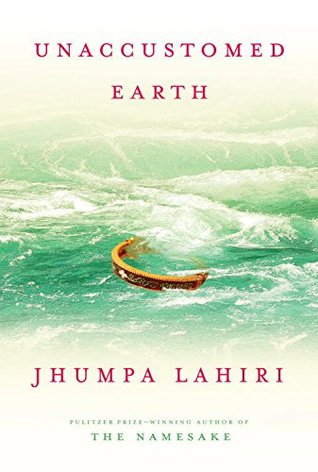More on this book
Community
Kindle Notes & Highlights
Human nature will not flourish, any more than a potato, if it be planted and replanted, for too long a series of generations, in the same worn-out soil. My children have had other birthplaces, and, so far as their fortunes may be within my control, shall strike their roots into unaccustomed earth. —NATHANIEL HAWTHORNE, “The Custom-House”
There were times Ruma felt closer to her mother in death than she had in life, an intimacy born simply of thinking of her so often, of missing her. But she knew that this was an illusion, a mirage, and that the distance between them was now infinite, unyielding.
It was not passion that was driving him, at seventy, to be involved, however discreetly, however occasionally, with another woman. Instead it was the consequence of being married all those years, the habit of companionship.
But death, too, had the power to awe, she knew this now—that a human being could be alive for years and years, thinking and breathing and eating, full of a million worries and feelings and thoughts, taking up space in the world, and then, in an instant, become absent, invisible.
He wanted to shield her from the deterioration that inevitably took place in the course of a marriage, and from the conclusion he sometimes feared was true: that the entire enterprise of having a family, of putting children on this earth, as gratifying as it sometimes felt, was flawed from the start. But these were an old man’s speculations, an old man who was himself now behaving like a child.
What could there possibly be to be unhappy about? her parents would have thought. “Depression” was a foreign word to them, an American thing. In their opinion their children were immune from the hardships and injustices they had left behind in India, as if the inoculations the pediatrician had given Sudha and Rahul when they were babies guaranteed them an existence free of suffering.
In another minute he would cry out, wanting her, expecting breakfast; he was young enough so that Sudha was still only goodness to him, nothing else.
“She’s not with us, Didun,” I said, and it was only then both my grandparents broke down, grieving freshly for my mother as neither my father nor I had done. Being with her through her illness day after day had denied us that privilege.
I had never traveled alone before and I discovered that I liked it. No one in the world knew where I was, no one had the ability to reach me. It was like being dead, my escape allowing me to taste that tremendous power my mother possessed forever.
But Kaushik never fully trusted the places he’d lived, never turned to them for refuge. From childhood, he realized now, he was always happiest to be outside, away from the private detritus of life. That was the first thing he’d loved about taking pictures—it had gotten him out of the house.


